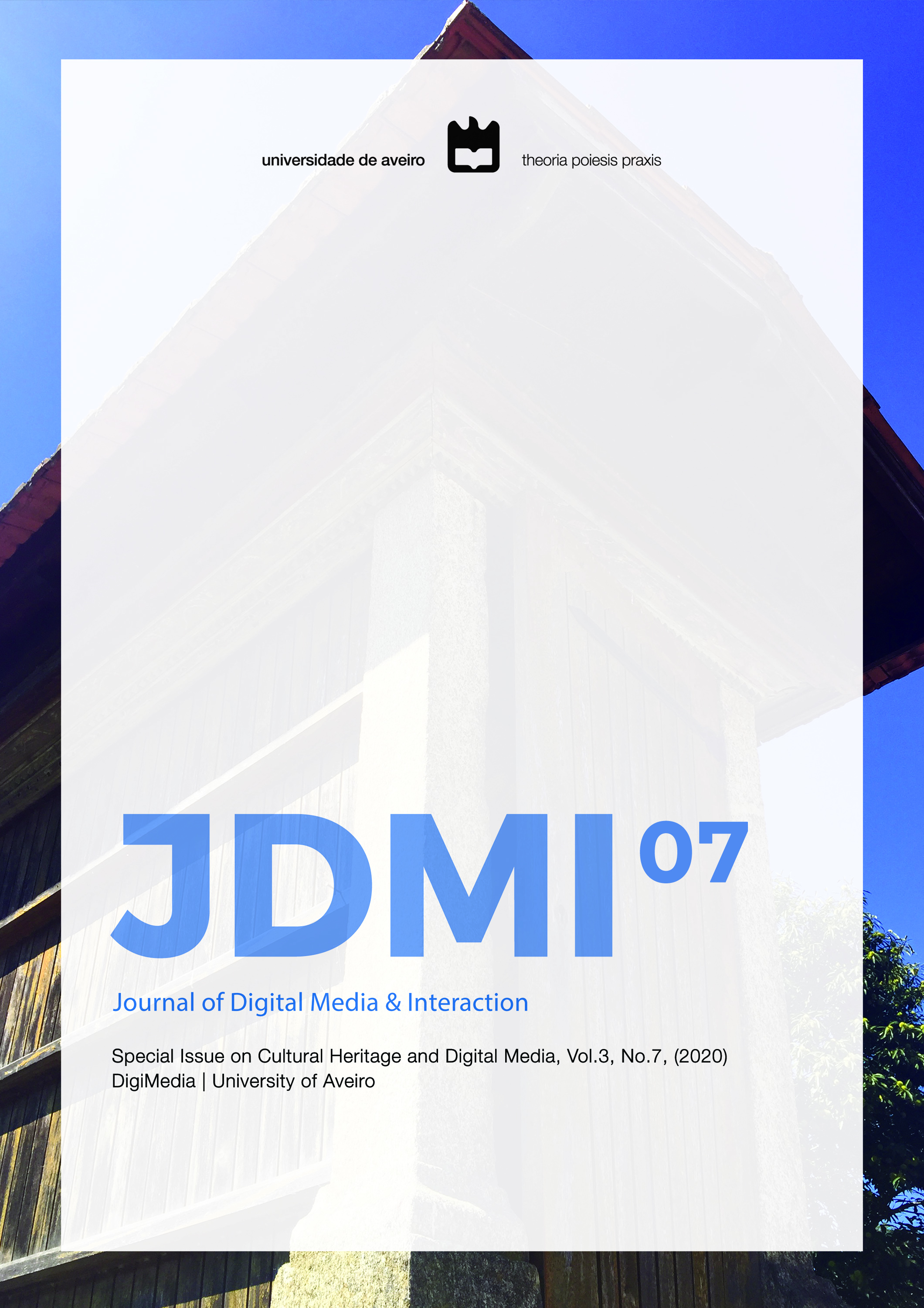O Romanceiro Ibérico no Brasil: um Património da Língua Portuguesa em Ambiente Digital
(The Brazilian folk balladry: a Portuguese Language Patrimony in Digital Environment)
Abstract
Na esteira do trabalho já desenvolvido pela equipa da plataforma Romanceiro.pt, que acolhe projetos diversos dedicados à edição e ao estudo do romanceiro de tradição oral, deu-se recentemente início à compilação, organização e apresentação de uma proposta de infraestrutura digital que visa acolher e difundir os materiais concernentes ao romanceiro de matriz ibérica no Brasil. Estas tarefas, que procuram, no fundo, promover a patrimonialização deste bem cultural imaterial que, no Brasil, surge com alguma frequência confundido com a literatura de cordel, marcam os primeiros passos para a constituição do “Arquivo do Romanceiro do Brasil”. Para isto, servimo-nos de ferramentas, metodologias e estândares transdisciplinares das Humanidades Digitais. Por sua vez, a ação descrita persegue um objetivo investigacional mais abrangente e exigente, que é o da edificação do “Arquivo do Romanceiro em Língua Portuguesa”.
Apresentamos, aqui, não só o enquadramento de partida deste projeto como também algumas das conclusões parciais já alcançadas, ao mesmo tempo que descrevemos sucintamente as atividades levadas a cabo.
(Following upthe work already carried out bythe team of the Romanceiro.pt platform, which hosts several projects devoted to the edition and study of the oral tradition folk balladry, we have recently kicked off the compilation, organization and presentation of a proposal for a digital infrastructure.Our aim isto host and disseminate the materials concerning the Iberian folk balladry tradition in Brazil.Whatthese tasks seek to promoteisa deep heritage action for this intangible cultural assetwhich inBrazil is often confused with thecordelliterature. The research is now takingitsfirst steps towards the construction of the “Archive of the Brazilian folk balladry”. In order toaccomplish it, we use tools, methodologies and transdisciplinary standardsstemming from the field ofDigital Humanities. Moreover, this action pursues a larger and demanding research goal, which is to build up the “Archive of the Portuguese expression folk balladry”.This work presents not only the starting framework for this project, but also some of the conclusions already reached, briefly describing the activities developedso far.)
Downloads
References
Agenda 2030 para o Desenvolvimento Sustentável. (2015). Organização das Nações Unidas. Retrieved from https://nacoesunidas.org/pos2015/agenda2030/
Armistead, S. G. (1978). El Romancero judeo-español en el Archivo Menéndez Pidal (Catálogo-índice de romances y canciones). Madrid: Cátedra Seminario Menéndez Pidal.
Boto, S. (n.d.). romanceiro.pt. Retrieved from www.romanceiro.pt
Catalán, D. (1997). Arte poética del romancero oral. Parte 1a. Los textos abiertos de creación colectiva.Madrid: Siglo Veiteuno.
Costa, C. V. (2014). O Romance de Tradição Oral e suas Relações com a Literatura de Cordel.68–82.
Costa, J.R. N. (2015). CELSO MAGALHÃES: pioneiro nos estudos do folclore brasileiro. IV Simpósio de História Do Maranhão Oitocentista: Escravidão e Diáspora Africana No Século XIX. Retrieved from ISSN 2236-9228
Débax, M. (1990). “Romancero”, edición, estudio y notas por Michelle Débax. In Criticón. Madrid: Editorial Alhambra Longman, S. A.
Ferré, P. (2000). Romanceiro Português da Tradição Oral Moderna. Versões publicadas entre 1828 e 1960. Vol. 1. Estudo introdutório.Lisboa: Serviço de Educação Fundação Calouste Gulbenkian.
Fontes, M. da C. (1994). O Romanceiro Brasileiro: Pequeno Catálogo. Revista de Dialectología y Tradiciones Populares, (49), 221–249.
Forneiro, J. L. (2016). Existiu o Romanceiro Ibérico de Tradição Oral em Moçambique? Estudios Portugueses y Brasileños, 16, 133–148.
Guerreiro, M. V. (1978). Para a História da Literatura Popular Portuguesa. «Biblioteca Breve».Lisboa: Instituto de Cultura Portuguesa.
Lima, R. T. de. (1959). Achegas ao Estudo do Romanceiro no Brasil. RAMSP, no162. https://doi.org/10.2307/835401
Martins, G. d’ O. (2017). Património, Herança e Memória. A cultura como criação.(3aed.). Lisboa: Gradiva Publicações, S.A.
Menéndez Pidal, R. (1953). Romancero Hispanico (Hispano-Portugues, Americano y Sefardi). In Hispania. https://doi.org/10.2307/335650
Saraiva, A. (2007). A crise da literatura e a literatura marginal ou marginalizada. Santa Barbara Portugueses Studies: «Literatura Marginal (Dossier Org. Por Arnaldo Saraiva)». Universidade Da Califórnia, IX, 5–15.
Copyright (c) 2020 Sandra de Jesus Boto, Bruno de Carvalho Belmonte

This work is licensed under a Creative Commons Attribution-NonCommercial-NoDerivatives 4.0 International License.
Authors who publish in the JDMI agree to the following terms:
-
Authors retain copyright and grant the journal the right of first publication with the work simultaneously licensed under a Creative Commons BY-NC-ND 4.0. This licensing allows others to share the work with no changes and acknowledgement of the work's authorship and initial publication in this journal, but not for commercial use.
-
Authors are able to enter into separate, additional contractual arrangements for the non-exclusive distribution of the journal's published version of the work (e.g., post it to an institutional repository or publish it in a book), with an acknowledgement of its initial publication in this journal.
-
Authors are permitted and encouraged to post their work online (e.g., in institutional repositories or on their website) after publication, as it can lead to productive exchanges, as well as earlier and greater citation of published work.
Copyrights to illustrations published in the journal remain with their current copyright holders.
It is the author's responsibility to obtain permission to quote from copyright sources.
Any fees required to obtain illustrations or to secure copyright permissions are the responsibility of authors.
Additional Information
All correspondence concerning contributions, books and other review material should be sent to: deca-jdmi@ua.pt


